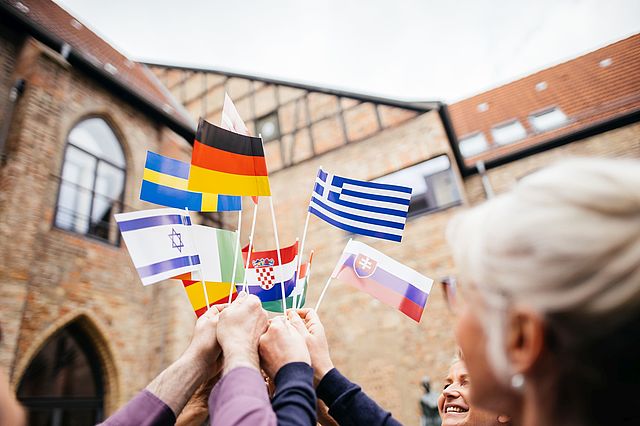Main content
Erasmus+
The Erasmus programme is the central educational program of the European educational area. It plays an essential role in the Internationalization Strategy of the Nordhausen University of Applied Sciences. In more than 20 years the university has established relationships with numerous Erasmus partner universities.
Extensive mobility options are offered for students, faculty and staff:

Nordhausen University of Applied Sciences has again successfully applied for the Erasmus Charter for Higher Education and thus received the approval to participate in the Erasmus+ programme generation 2021- 2027. The focal points of the new programme generation are:
Erasmus+ Digital: promotion of digital competences of students and teachers; virtual and mixed ("blended") mobility formats; digitalization of programme administration ("Erasmus without Paper").
Erasmus+ Green: Promoting environmentally friendly travel routes; raising awareness on sustainability, environment and climate change.
Erasmus+ Social Participation: Equal opportunities through additional mobility and support services; increase the share of previously underrepresented target groups (e.g. persons with special needs, first-time graduates, students/teachers with caring responsibilities, participants of certain subject groups)
Erasmus+ Civic Engagement: Strengthening the European identity; promoting the active participation of individuals and civil society in democratic processes.
Download


Further information on Erasmus mobility measures is available from the International Office and the DAAD:
DAAD
National Agency for EU Higher Education Cooperation
Kennedyallee 50
53115 Bonn
Contact details DAAD